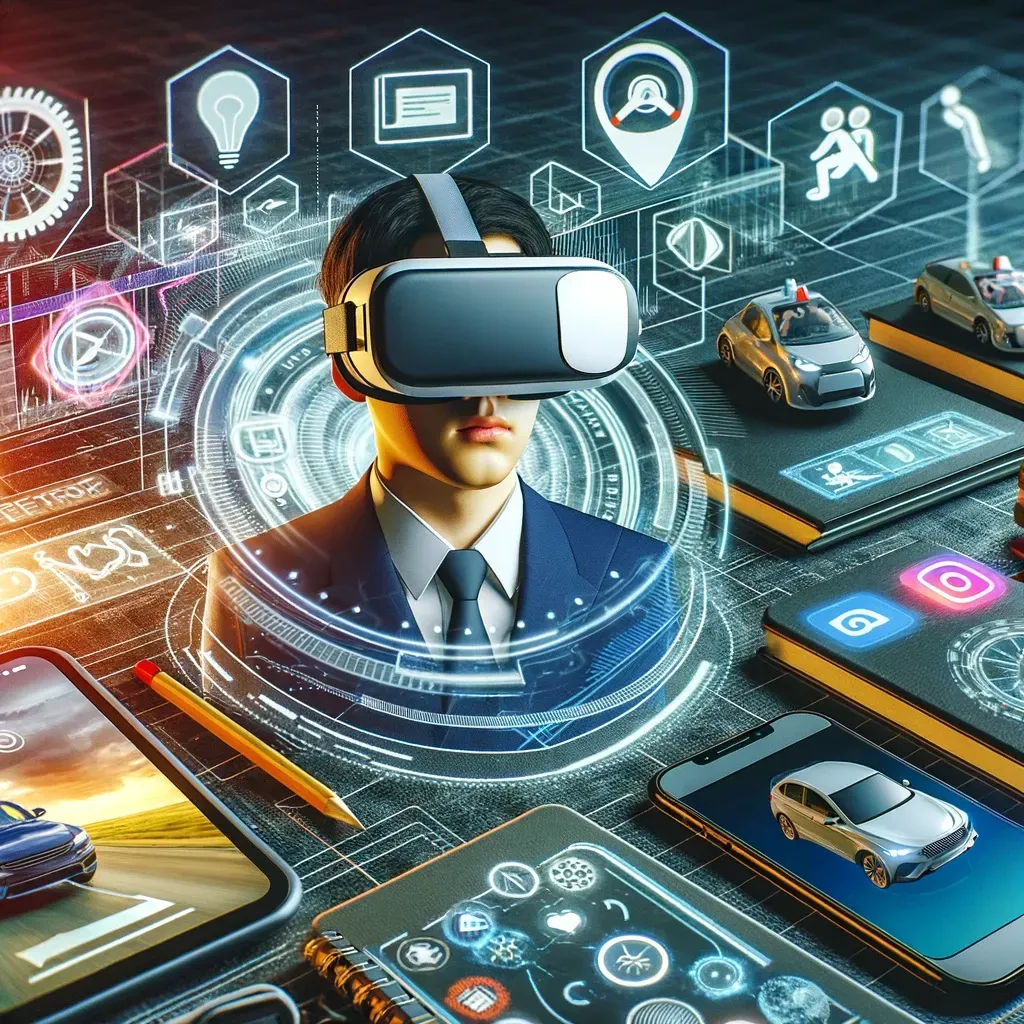BLOG
Welcome to the Elite Drivers Training Blog - your premier destination for expert advice, insider tips, and comprehensive guides to mastering the art of driving. Whether you're a beginner taking the wheel for the first time or an experienced driver looking to refine your skills, our blog offers a wealth of resources designed to elevate your driving abilities to the next level.

Navigating the Future: The Role of Technology in Transforming Driving Education
Navigating the Future: The Role of Technology in Transforming Driving Education
Introduction:
In an era where technology infiltrates every aspect of our lives, it's no surprise that it's also revolutionizing the way we learn to drive. Driving education, traditionally characterized by classroom sessions and hands-on driving practice, is undergoing a transformation. Innovations such as Virtual Reality (VR), Artificial Intelligence (AI), and mobile applications are leading this change, offering learners an experience that is not only more engaging but also more in tune with the digital age.

The image for your blog post on "Navigating the Future: The Role of Technology in Transforming Driving Education" has been created. This visual represents the integration of various technologies in driving education, showcasing a futuristic and educational approach to learning driving skills. It's designed to complement the themes discussed in your blog post, illustrating the innovative blend of technology and traditional driving education methods. 👊
1. The Digital Drive: Embracing New Technologies
Virtual Reality (VR) and Augmented Reality (AR)
VR and AR technologies are at the forefront of this educational revolution. By simulating real-world driving scenarios, these technologies provide learner drivers with the opportunity to practice maneuvers in a safe, controlled environment. From navigating busy city streets to practicing emergency stops, VR and AR can expose learners to a wide range of driving conditions and scenarios, enhancing their preparedness for real-life driving.
2. Artificial Intelligence (AI) and Machine Learning
AI and machine learning are personalizing the learning experience in ways previously unimaginable. These technologies can tailor learning modules to suit the individual's learning pace, identify areas of weakness, and adapt the training program accordingly. AI-driven analytics can also provide learners with feedback on their driving performance, offering insights into how they can improve.
3. Mobile Apps: Learning on the Go
The convenience of mobile apps has also made its way into driving education. Today, learners can access a plethora of apps offering theory tests, practical driving tips, and even AR features that allow them to visualize driving maneuvers. These apps make it possible for learners to study anytime, anywhere, fitting their driving education around their busy schedules.
4. The Road Ahead: Challenges and Opportunities
While the integration of technology in driving education presents numerous benefits, it also poses challenges. The digital divide remains a significant concern, as not all learners may have access to the latest technologies. Moreover, the importance of hands-on experience cannot be understated. Technology should complement, not replace, the invaluable experience gained from actual driving practice.
5. You can repurpose blog content for social media
This is a great way to get more mileage out of your blogs and increase traffic. However, it's important to use the right type of content on Facebook. If you write about topics like parenting, personal finance, or food, they might not be as relevant on Facebook as other types of posts.
If you are looking to make money online, affiliate marketing has become one of the most popular. Affiliate marketing allows bloggers to earn commissions by promoting products and services from others. The blogger does not need to own any product or service to be able to promote them. All he needs is a link to the product or service which he wants to promote.
6.
Navigating the Future: The Role of Technology in Transforming Driving Education
In an era where technology infiltrates every aspect of our lives, it's no surprise that it's also revolutionizing the way we learn to drive. Driving education, traditionally characterized by classroom sessions and hands-on driving practice, is undergoing a transformation. Innovations such as Virtual Reality (VR), Artificial Intelligence (AI), and mobile applications are leading this change, offering learners an experience that is not only more engaging but also more in tune with the digital age.
The Digital Drive: Embracing New Technologies
Virtual Reality (VR) and Augmented Reality (AR)
VR and AR technologies are at the forefront of this educational revolution. By simulating real-world driving scenarios, these technologies provide learner drivers with the opportunity to practice maneuvers in a safe, controlled environment. From navigating busy city streets to practicing emergency stops, VR and AR can expose learners to a wide range of driving conditions and scenarios, enhancing their preparedness for real-life driving.
Artificial Intelligence (AI) and Machine Learning
AI and machine learning are personalizing the learning experience in ways previously unimaginable. These technologies can tailor learning modules to suit the individual's learning pace, identify areas of weakness, and adapt the training program accordingly. AI-driven analytics can also provide learners with feedback on their driving performance, offering insights into how they can improve.
Mobile Apps: Learning on the Go
The convenience of mobile apps has also made its way into driving education. Today, learners can access a plethora of apps offering theory tests, practical driving tips, and even AR features that allow them to visualize driving maneuvers. These apps make it possible for learners to study anytime, anywhere, fitting their driving education around their busy schedules.
The Road Ahead: Challenges and Opportunities
While the integration of technology in driving education presents numerous benefits, it also poses challenges. The digital divide remains a significant concern, as not all learners may have access to the latest technologies. Moreover, the importance of hands-on experience cannot be understated. Technology should complement, not replace, the invaluable experience gained from actual driving practice.
Conclusion: Driving Towards a Safer Future
As we navigate the future of driving education, it's clear that technology will play a pivotal role in shaping how we learn to drive. By embracing these innovations, we can make driving education more accessible, engaging, and effective, ultimately leading to safer roads for everyone. The journey ahead is promising, and as technology continues to evolve, so too will the ways in which we prepare the next generation of drivers for the road ahead.
The integration of technology into driving education is not just a trend; it's a transformative shift that promises to enhance the learning experience and improve road safety. As we look to the future, the potential for new technologies to further revolutionize driving education is limitless. The road ahead is digital, and it's an exciting time to be part of this journey.

Entcho
Owner of Golden Wheel Driving School
Office: Golden Wheel Driving School 75 Broadway, Elmwood Park NJ 07407
Call 201-797-5858
Email:[email protected]
Site: www.elitedriverstraining.com
